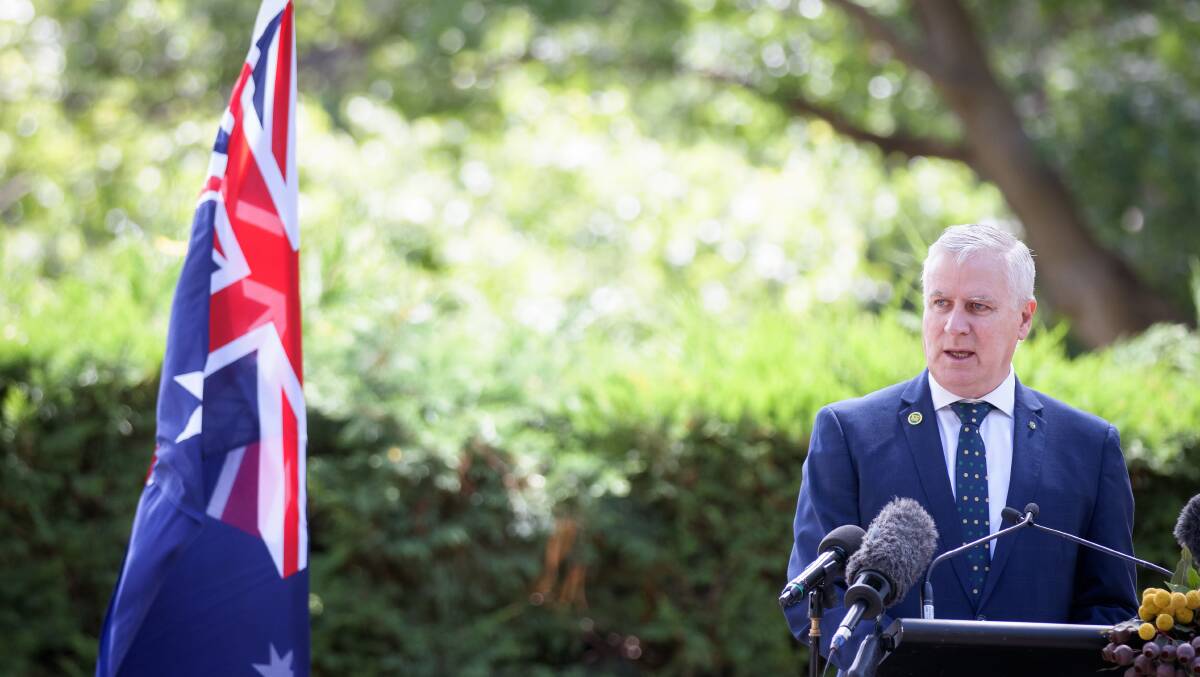
Secret talks to allow cheap foreign-flagged ships access to Australia's interstate transport market could undermine the viability of the massive inland rail project and threaten thousands of regional jobs, unions have warned.
Subscribe now for unlimited access.
or signup to continue reading
The latest discussion paper circulated to a limited audience, would see foreign vessels more easily competing for domestic freight work without paying Australian wages or conditions. Similar coastal trading reforms were defeated by the Senate twice since 2015.
Labor has repeatedly called out the Transport Department for limiting opportunities for affected industries to participate in the consultation. The newest paper was not made available to the rail freight sector.
IN OTHER NEWS:
The Rail Tram and Bus Union is concerned that rail freight along the 1700km "corridor of commerce" will turn into a white elephant, threatening incomes and livelihoods in regional Australia that depend on inland rail.
The government, however, claims the two modes of freight are functionally independent and the reforms will have "no meaningful impact" on rail.
"These reforms will decimate jobs, many of which are concentrated in regional Australia," RTBU national secretary Mark Diamond said. He called on Deputy Prime Minister Michael McCormack to quash the reforms and pull his department into line.
"Up to 10,000 direct and indirect jobs are at risk if foreign-flagged vessels with third world labour practices are allowed to undercut Australian conditions. This will be a sucker punch to Australian workers."
Mr Diamond said the proposal would drain money from the Australian economy as the profits are repatriated overseas. Foreign shipping operators also do not pay Australian wages or taxes and do not operate to Australian safety standards.
The RTBU predicted an increase to rail freight pricing due to the reduced rail volumes, noting that freight rail requires critical mass in order to recover its fixed operational costs.
The deputy prime minister had a case to answer, the union claimed, having described the Inland Rail project as a 1700km 'corridor of commerce' that will underpin regional economies. "But now his own department could turn that project into a massive white elephant," Mr Diamond said.
The department is proposing to cut requirements on foreign vessels and allowing automatic approval of temporary license applications where there is no existing license on the route. One-off shipping licenses would be allowed, and the limits on cargo variations for temporary licenses would be removed.
Currently foreign-flagged vessels on a coastal trading temporary license must pay their crew additional wages from the third voyage, but with limits on new temporary licenses removed it is not clear how that could be enforced.
The government doesn't see coastal shipping being very effective at undercutting inland rail, however, due to journey time.
"Australia has a large freight task that relies on all modes of transport," a spokesperson for the deputy prime minister said. "Inland Rail will offer a transit time between Melbourne and Brisbane of under 24 hours as compared to an average journey time of three to five days for coastal shipping."
The current consultation process was intended to identify opportunities to remove administrative impediments for cargo owners, "who are predominantly Australian businesses without impacting other transport modes".
"The Australian government understands the importance of any coastal shipping reforms to the freight rail industry and any reforms will have no meaningful impact on Inland Rail."
The deputy prime minister has talked of inland rail supporting 21,500 jobs at the peak of construction and delivering an extra economic boost of $2 billion.
"Inland Rail is a jobs bonanza," Mr McCormack said in December. "It's already supporting thousands of jobs, has already started to generate billions in economic activity and will eventually lead to a boost of more than $18 billion GDP during construction and in the first 50 years of operation."
A report by EY commissioned by the department found Inland Rail could boost gross regional product by a further $13.3 billion in today's dollars and deliver up to 2500 full time jobs by the tenth year of operation. The EY report did not factor in changes from coastal shipping reforms.














